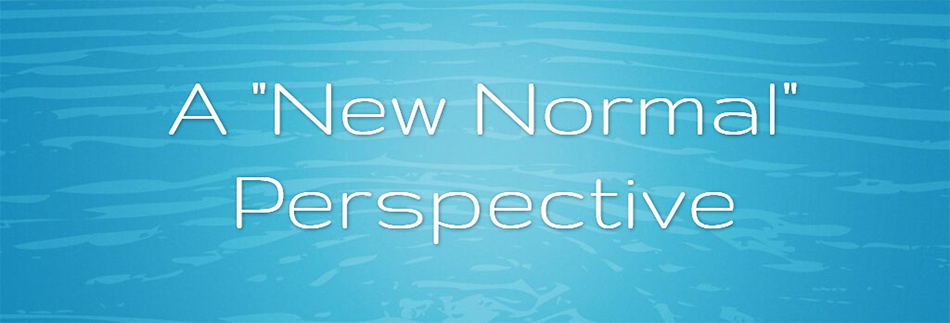
It’s been a year since we’ve been dealing with the pandemic. I almost cannot believe I wrote that last sentence. One year! I remember March 2020 like yesterday. My wife, son, parents and sister-in-law went away for a few days to Pigeon Forge, Tennessee. We enjoyed driving through the Smoky Mountains, going sightseeing and even doing some hiking. Each night we’d return to the cabin we rented and we’d turn on the news and every night the news got worse. I knew we were headed into uncharted territory when the NCAA Tournament got cancelled. When we returned to Virginia it was like we were returning to a different world. I never dreamed the first thing we’d have to do upon our return was to go on a scavenger hunt for toilet paper!
How did things get so bad, so quickly? Since last March words that we’ve never spoken have become part of our everyday vernacular; Zoom meetings, social distancing, contact tracing, herd immunity, and virtual learning are as familiar as old friends. I now have a new pet peeve. I’ll get out of my car, walk halfway across the parking lot and realize I’ve forgotten my mask! Problems that didn’t exist a year ago are now regular annoyances.
Similarly, problems that we dealt with a year ago have gone away or we’ve learned to put them into proper perspective. That’s one thing the last year has taught me, perspective. Socrates famously said, “The unexamined life is not worth living.” The pandemic gave me an opportunity to think more deeply about the importance of family, friends, the frailty of life, and the critical importance of human connection. Some of the questions that I’m wrestling with are, what will life look like once we emerge from the Pandemic? Will “normal” look like February 2020? Or will it be something different? What do we want life to look like? These are important questions that require deep thought. I don’t want to just slip into old routines without thinking about how I’m spending the gift of time that the Lord is giving me.
As I think about these questions, I am reminded of Moses and the people of the Exodus. When the Israelites emerged from 400 plus years of slavery, they had to put the past behind them and move forward in faith. They were wrestling with the question, “Who are we, now that we’re no longer slaves?”
I’m asking a similar question – who do we want to become once we emerge from this major event in our lives? God supplied Moses with an answer in Exodus 19:6, “You shall be for me a kingdom of priests and a holy nation.” The Apostle Peter reaffirms this vision for God’s people when he says in 1 Peter 2:9, “But you are a chosen people, a royal priesthood, a holy nation, God’s special possession, that you may declare the praises of him who called you out of darkness into his wonderful light.”
As we begin to imagine life on the other side of the Pandemic, I’d like for us to think about how we might recommit ourselves to God’s vision of being a Kingdom of Priests. In Baptist tradition we celebrate the “Priesthood of all believers.” This doctrine states that because Jesus Christ is our only mediator between God and us, we have been commissioned to function as priests. Please don’t let the word “priest” intimidate you. God is not asking you to preach a sermon every Sunday or teach a Sunday school class. Simply put, the role of a priest is to represent God. Or, as CS Lewis once said, we’re to be “Little Christs.” The best way to be “Little Christs,” and to live into God’s vision of being a Kingdom of Priests is to live out the Great Commandment of loving God and loving our neighbor.
There it is again, human connection. One of the things the Lord has impressed upon me during the pandemic is the importance of listening to God and listening to each other, being present to one another. Listening is a form of loving. To help us grow in our relationship with God and each other we’re going to offer Prayer and Listening Groups or PALs groups throughout this year. A PALs group is a six-week small group experience where we will learn how to listen for the voice of God; we’ll learn different ways to pray; and we’ll also learn incarnational listening, which will help us listen to each other. This is important work.
I believe God will use this time to guide us a church and guide us individually. I believe we’ll renew some old friendships and make new friends through these groups. We’ll grow closer to the Lord and closer to each other. I’ve been saying that our faith will be stronger once we’ve moved beyond the pandemic. This is a step in that direction, this is redemptive work. You’ll have multiple opportunities to be a part of a PALs group this year. We’re going to offer them throughout the year, at different times, different days, different venues with different leaders. Please consider this your invitation to be involved in a PALs group this year.
The first PALs group will meet on Tuesday March 9th at 11 a.m. in the People of Hope Center. If you cannot make this first group, there will be other opportunities to participate. We will, of course, practice social distancing and we’ll wear masks. Perhaps we’ll be treated to some warm days and if that’s the case we may meet outside. If you’d like to participate please call or email the church office, and we’ll get you registered for the group.
May God bless you and may God bless Bethel Baptist Church.
